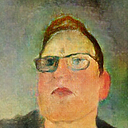You’re misunderstanding the implications of what you’ve been reading, so let me explain briefly. Starting with the Noah Rosenberg paper, which you should read in full and not just the Wiki. It’s available online.
Yes, if you feed a bunch of genetic information information from millions of individuals into a computer and have it sort into five groups, then you’ll come up with clusters that match the continents and line up with the traditional racial groups.
That just means genetic variation follows a geographic pattern, but it doesn’t mean “race is real.” When we talk about whether or not race is “real” biologically, the question we’re really asking is whether or not it is a scientifically useful category for the field of biology/genetics, etc.
It’s not. For a category to be useful in science (or just any field that involves taxonomy), you want high similarity within categories and high difference between categories. The opposite is true of continental genetic clusters, which is why they can’t be said to be interchangeable with “race.” Only about 4 percent of human genetic variation happens between these clusters. The rest is within.
For example, Africa has the highest level of genetic variation on the planet. In fact, since all human life originates from Africa, all other populations are a subset of the genetic variation found in Africa. So the category “black” is functionally meaningless from a scientific standpoint. Somalis don’t look anything like Khoisan people.
In the old racial typology, Ethiopians and other Abyssinian peoples were considered a Hamitic subgroup of the Caucasian Race (they were literally considered black-skinned white people because anthropologists had to reconcile the fact that their facial features did not resemble those of other black people). Pygmies and Melanesians were both Negroid subraces even though later genetics research revealed that they were in fact the two most genetically distant groups on the planet.
“Race” as it was understood before was interchangeable with “subspecies,” though population geneticists have found that they do not meet this criteria.
I suggest you read population geneticist Alan Templeton and anthropologist Jonathan Marks.
